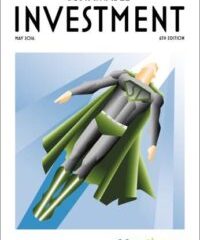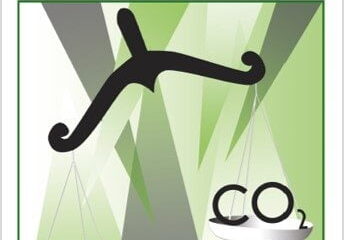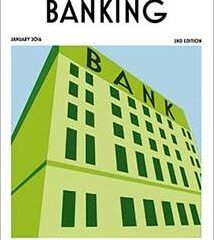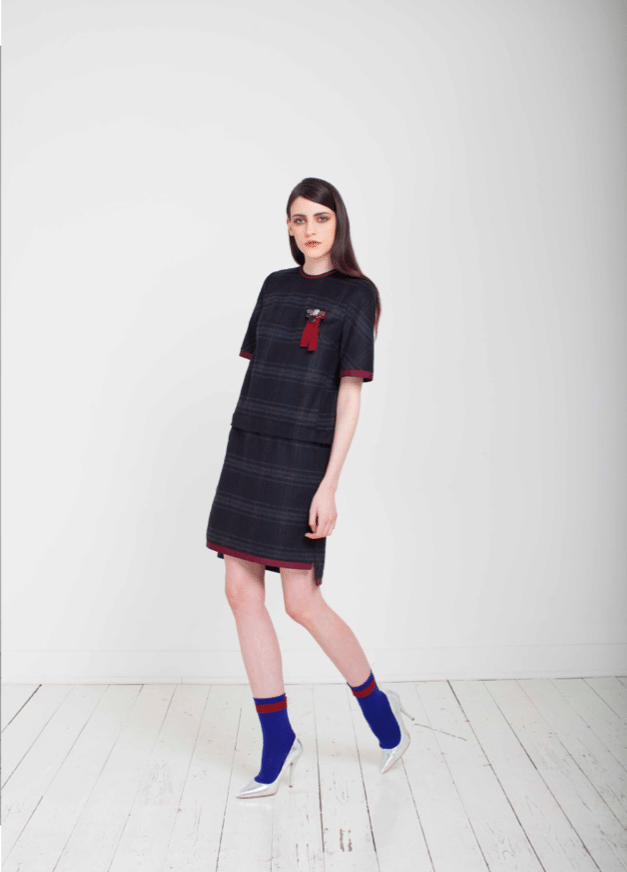
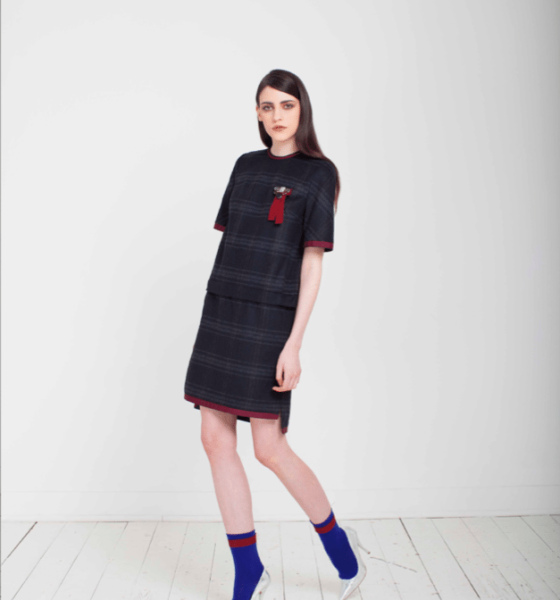
Features
London Fashion Week: ‘fashion and sustainable fashion can be one and the same’
A range of leading fashion brands are now adopting sustainability. Morwenna Kearns reports on the recent London Fashion Week.
For the first time since its foundation in 2006, the Estethica exhibition at London Fashion Week AW14 escaped from its self-contained room in Somerset House and spread throughout the building. Ethical designers were placed on an equal footing with every other milliner, couturier, jeweller and accessories brand exhibiting in the showrooms.
The recognition of ethical and sustainable fashion is growing, but the British Fashion Council’s decision to have these designers exhibit virtually incognito (a modest Estethica tag was displayed on their stands) demonstrates what campaigners have been saying for years: ethical style can be indistinguishable from everything else, so there’s no excuse for ignoring sustainability.
“The new Estethica tag aims to recognise that fashion and sustainable fashion can be one and the same thing. We are proud to acknowledge that so many talented designers are committed to transparency, sustainability and social responsibility and look forward to seeing their collections unveiled here at London Fashion Week“, commented BFC chief executive Caroline Rush in a statement ahead of the show.
Mich Dulce, a milliner working with a social enterprise in the Philippines to create her collection, agrees. “Estethica is normally a novelty, but this year we’re here with everyone else. And that’s how it should be“, she says. Dulce’s designs use sustainable banana fibre and are made by hand by a small community who are experts in the process, and could be seen on any of the most stylish heads at Ascot.
Pachacuti, sharing the millinery room, is reportedly overwhelmed with orders for its collection of Fairtrade fedoras, while Bottletop has just launched its latest collection of recycled ring pull handbags at Harrods.
This newfound equality has the potential to influence other designers’ position on sustainability. Contemporary fashion designer Katrien van Hecke, presenting her collection of silk dresses and separates coloured with ecologically friendly vegetable dyes and Himalayan salt, recognises this power.
“As a designer you have to take responsibility“, she says. “You have to consider how clothes are made.” She notes that sustainability “is not high fashion” in her home country of Belgium, while Paris, her next stop on the fashion week trail, is more concerned with design – making it even more important that designers factor in ecological impact from the outset.
Those seeking out the Estethica showroom at Somerset House this February would still find it, but this time it was occupied by five newcomers handpicked by BFC to present their first or second collection.
These “emerging talents” – Cangiari, Devika Dass, Flavia La Rocca, K2TOG and Louise de Testa – will also be mentored by industry experts including Estethica co-curators Anna Orsini, Orsola de Castro and Flippo Ricci. Evidence, perhaps, of BFC putting its money where its mouth is by giving new ethical designers the boost they need while allowing established names that essential equality within the show.
These new talents exemplified the variety of viewpoints on the classification of ethical fashion. Flavia La Rocca uses recycled polyester in her pieces but the emphasis is on hardworking clothes; garments feature zips to enable them to be separated and mixed up to create a multitude of different combinations. La Rocca says she is inspired by “the everyday life of women who are always running around“, necessitating a flexible wardrobe.
The reversible outerwear in Cangiari’s collection also does double duty in this sense. Made by a social co-operative in Italy, Cangiari’s pieces are produced using traditional weaving techniques in organic yarn and colour. Devika Dass, too, supports traditional crafts, working with a knitting circle in Peru to create her collection of barbarian-inspired designs. In her brand’s biography, she says meeting the community of craftswomen, “literally knitting to survive“, brought about the idea for her business.
Closer to home is K2TOG, aka London-based knitter and designer Katie Jones, who is heavily influenced by the ‘make do and mend’ ethos. Using reclaimed and excess yarn from design houses and leather jackets and skirts sourced from charity shops, Jones recognises the potential efficiency savings of upcycling. When the basic materials have already been processed, a craftsperson can spend time on what matters – in Jones’s case, the bright hand embroidery that turns neutral woollen and leather garments into unique, punky couture.
Paris-based Louise de Testa also prioritises efficiency in her zero-waste sportswear. Taking inspiration from her background in Mathematics, de Testa uses roll-ends from French clothing manufacturers to produce her designs, even creating geometric, marquetry-style details from tiny scraps of fabric, some of which double up as pockets. Others incorporate reflective material to make the pieces ideal for cyclists. These are clothes “to help you live your life“, she says – wearable, comfortable, practical and logical.
The overtly environmental aspects of the runway shows were few, save for Vivienne Westwood’s bid to raise awareness of fracking, but events such as Ecoluxe London‘s Luxury Sustainable Fashion show appeared on the off-schedule listings around the city. It may be some time before fashion and sustainable fashion are considered one and the same by all, but AW14 showed the strength of support for progress.
Morwenna Kearns is a freelance writer, online editor and PR and social media manager for businesses and organisations running the sustainability and ethical gamut, from fashion to food to filmmaking. She also works within the visual communications sector. Morwenna can be found tweeting as @morwennakearns, blogging about ethical fashion and beauty at GreenGlitter.co.uk and editing environmental business news at SustainableReview.net.
Further reading:
A manifesto for fashion that truly challenges the status quo
Is a passion for fashion compatible with a concern for the world around us?
The True Cost: the future of fashion is on sale


 Environment11 months ago
Environment11 months agoAre Polymer Banknotes: an Eco-Friendly Trend or a Groundswell?

 Features10 months ago
Features10 months agoEco-Friendly Cryptocurrencies: Sustainable Investment Choices

 Features11 months ago
Features11 months agoEco-Friendly Crypto Traders Must Find the Right Exchange

 Energy10 months ago
Energy10 months agoThe Growing Role of Solar Panels in Ireland’s Energy Future


